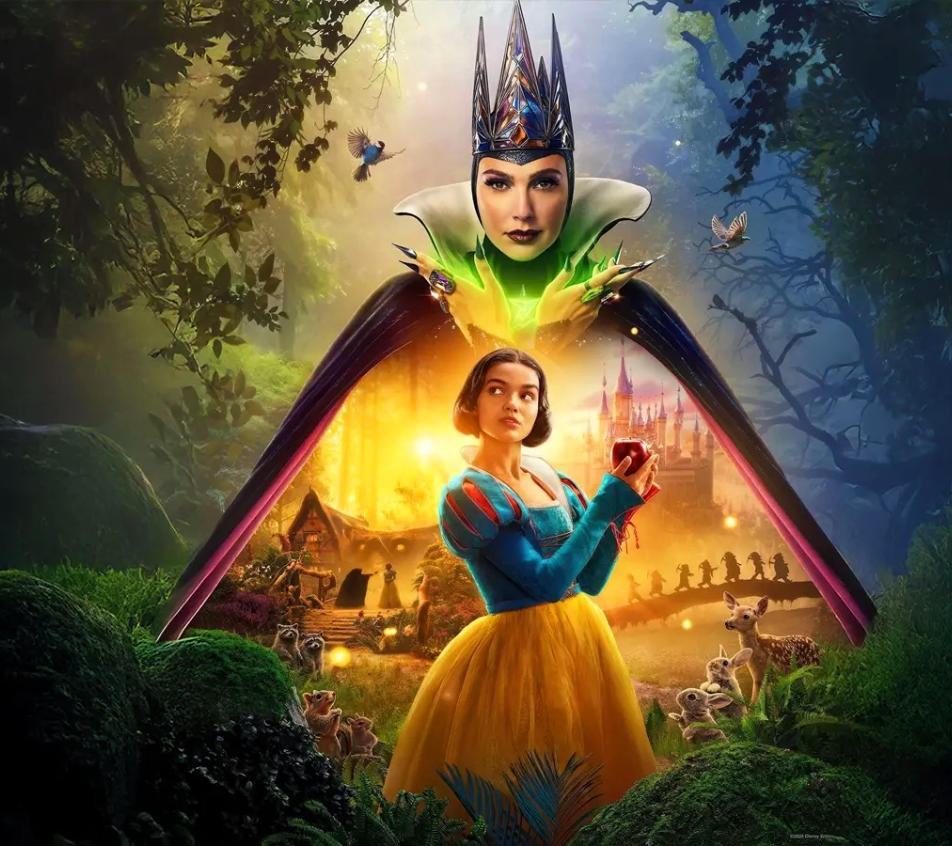
Film Writer Eve Hutchinson looks at the original Snow White, and compares it to Disney today
Disney’s announcement of the release of a new live action version of the 1937 animated feature film Snow White and the Seven Dwarves received a polarising response. There was criticism around the casting of Rachel Zegler as Snow White, the inclusion of CGI dwarves and fatigue at the news of yet another Disney live-action remake. Many critics have already condemned this new adaptation; The Guardian labelled it as an ‘exhaustingly awful reboot’ and ‘toe-curlingly terrible.’
I am going to form my final judgement when I see this version in cinema. I would like to explore this new iteration of Snow White through a different lens. I will consider the original 1937 animated film’s cultural and historical importance to the Walt Disney company and how the decision to put a new spin on the classic tale may prove detrimental to Disney’s future.
Hollywood circles nicknamed Snow White ‘Disney’s Folly’
Modern viewers and consumers do not remember a day where Disney has not been one of the world’s leading global media and entertainment brands, but the Walt Disney Company started from humble beginnings. The Walt Disney Company was established in October 1923 by Walt Disney and his brother Roy. They had been producing modestly successful animated shorts for well over a decade such as the famous Mickey Mouse and Silly Symphony cartoons. Disney recognised the potential held in animation in being able to tell emotionally driven stories and narratives. He declared his ambition of producing a full-length animated feature film, a feat which had never been achieved before. Disney turned to European fairy tales by the Grimm Brothers and chose Snow White as the subject of his new project. When Disney’s plan was leaked, Hollywood circles deemed the venture to be impossible, nicknaming Snow White ‘Disney’s Folly’. The scale of the project was exhausting. Snow White faced many obstacles during its production, including finding techniques to help animate human figures realistically and making the structure of the film compelling.
Despite nearly bankrupting the studio to pay for the film to be finished, Snow White and The Seven Dwarves was released in December 1937 and was a major box office and critical triumph. The film changed the way animation was perceived and showcased it as a form of artwork and storytelling worthy of attention and respect. Its success paved the way for Disney’s successive releases such as Pinocchio, Dumbo, Bambi and Cinderella, elements of which can still be seen all the way to the present day.
Disney has entered a derivative pattern of churning out re-releases of classic films
Snow White and The Seven Dwarves’ status as the first Disney full length animated featured film in history set the foundation for the company that Disney was to become. The film’s groundbreaking, innovative production and Disney’s determination to break the mould demonstrate Snow White’s precious cultural and cinematic legacy and Disney’s philosophy of creativity and pushing artistic boundaries.
Despite recent successful ventures such as Encanto and Inside Out 2, Disney has entered a derivative pattern of churning out remakes of classic films. Some of these adaptations have their merits and add something new to the story they are telling such as the villain-led Maleficent and Cruella and the warmly received Cinderella starring Lily James. Recent releases feel more like a self-conscious, profit-making exercise or a technological update replacing hand-drawn cartoons with CGI than a genuine pursuit of a story that deserves retelling. This is a disappointment knowing Disney’s historically trailblazing role in the world of film-making and animation which was birthed from the creation of Snow White and The Seven Dwarves.
Taking Snow White, the first pinnacle achievement in the history of feature-length animated films, seems like a risk that wasn’t worth Disney taking. Disney’s ventures have been slumping in the box office and received ambivalently by critics and audiences. They seem to be losing some of their creative direction in the films that started it all: animations and fairy tales. Let’s hope that, after this 2025 release, Disney leaves the world of Snow White well alone.
Enjoyed this? Read more from Redbrick Film:
Comments